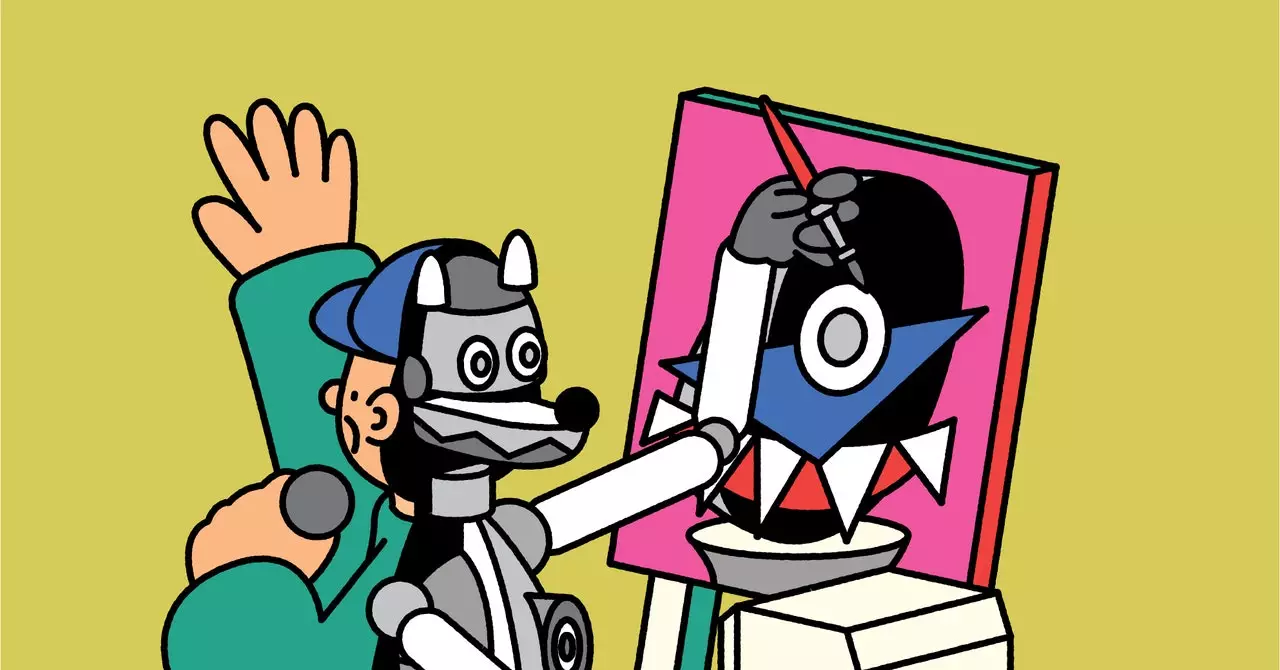The advent of large language models, epitomized by innovations like ChatGPT, has ignited both excitement and apprehension in various spheres, particularly in creative industries. Many voices in the tech community express fear that automation will overshadow human creativity, disrupting jobs that rely on emotional depth, passion, and intellectual engagement. While these concerns are not without merit, the introduction of AI might also serve as a catalyst for unparalleled artistic evolution. Rather than perceiving AI merely as a threat, it may be more beneficial to consider how it can complement and enhance human creativity, paving the way for exciting new forms of expression—especially in dynamic genres such as hip-hop.
To comprehensively understand how creativity may thrive alongside technology, hip-hop provides a compelling case study. Historically, this genre has been at the forefront of innovation, constantly evolving through various influences. This has included the early sampling of records and now, the interaction with AI-powered systems. AI-generated music has begun to permeate the cultural landscape, blurring the lines between authenticity and imitation. For instance, tracks like the AI-generated “One Shot” cause audiences to question the boundaries of authorship, raising important discussions about what it means to create music in an age where algorithms can simulate human artistry.
As we advance toward 2025, the proliferation of AI-generated music is likely to intensify, shaped largely by social media dynamics that prioritize virality and attention. This augmented landscape will challenge artists to redefine their creative processes and how they interact with AI systems.
Looking ahead, there are three notable pathways through which creativity and AI might intersect in the hip-hop community. The first is what we can term “complete immersion” into AI technology. In this scenario, artists may relinquish their traditional roles as creators in favor of enjoying the unprecedented output capabilities of AI. This raises intriguing questions about the human element in music, signaling a potential new industry where curators and critics will play an essential role. In this environment, human engagement with AI-generated music could emulate the current trends seen in platforms like TikTok, where influencers curate and popularize art in its myriad forms.
The second avenue involves a symbiotic relationship between artists and AI, allowing for a more nuanced creative output that melds human intuition with machine efficiency. For instance, the appeal of AI-assisted remixes, as suggested by hip-hop figures like 50 Cent, highlights how humor and creativity can mingle to produce something fresh yet recognizable. Further, AI’s potential to generate battle rap scenarios, where algorithms learn from human performances, suggests that we could be entering a new subgenre of competition and camaraderie shaped by technology.
Lastly, 2025 could witness an ironic renaissance sparked by the very technology that threatens traditional artistic values. As AI-generated content outpaces human production, there may be a marked resurgence in valuing human-made music—particularly those formative works that laid the groundwork for modern hip-hop. The renewed appreciation could lead to a financial boom for original artists and their music, creating a market for vintage works and raising awareness of hip-hop’s rightful place in the canon of high art.
This dynamic suggests that AI could redefine not just how music is produced, but also the cultural value ascribed to it. As the volume of AI-generated products escalates, society may come to cherish the authenticity and emotional depth of classical works even more profoundly. Amid increased production, we might finally observe the accolades that hip-hop deserves, recognizing its profound impact and historical significance.
As explorations into this relationship continue, it’s crucial to embrace the tensions that come from integrating human artistry with machine learning. Indeed, the next few years could usher in transformative changes to how art and technology coexist, leading to bright new creative horizons.
Ultimately, while the pathway ahead may include challenges—particularly regarding the displacement of traditional artistic roles—this age offers an unparalleled opportunity to rethink creativity in the context of AI. For hip-hop and other creative domains, the confluence of human intuition and computational prowess could equally lead to groundbreaking innovations as well as a newfound appreciation for past artistry. As we embrace this unfolding era, the possibility exists for creativity to flourish where humanity and technology intersect. Against the backdrop of AI advancements, the future of music, particularly hip-hop, could reveal a revitalized commitment to authenticity and expression, highlighting the timeless nature of human creativity amidst rapid technological change.

